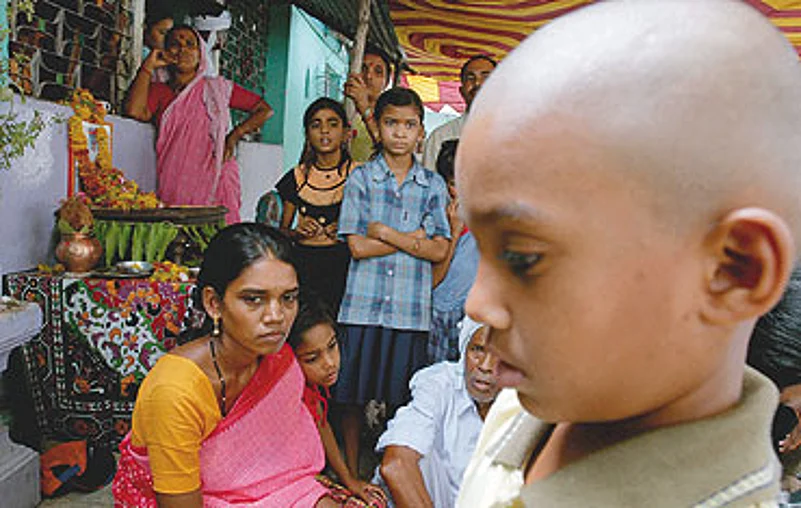
Even if remunerative prices were paid and interest rates brought down to four per cent as recommended by M.S. Swaminathan, chairman, NCF, it would make little difference unless import duty on cotton was re-assessed. It now stands at a mere ten per cent while sugar attracts 60 per cent. There's rich irony in that cotton-related industries are booming while cotton growers commit suicide. Says Prof Ajay Dandekar, an economist who authored the Tata Institute of Social Sciences report on farm suicides: "America has dumped 500 per cent more cotton in the last five years. Indian industry buys cheaper imported cotton. If the government wants Indian farmers to match market price, it must match the subsidies that America and the EU give their cotton growers."
Let's see how the Rs 3,750 crore adds up. A massive chunk of Rs 2,177 crore is for irrigation projects over the next three years, Rs 768 crore towards interest waiver, Rs 180 crore for seed replacement, and Rs 165 crore for livestock. It does not put anything concrete into the hands of the distressed farmers. In that sense, this follows the classic "book entry and jugglery" pattern such packages are wont to where allocations from one programme are transferred to another. It hardly addresses the prevalent crisis. "Suicides are not the crisis, they are a symptom of a deeper agrarian crisis," says journalist P. Sainath who has worked on the issue for over two years. "The difference between a suicide and non-suicide household is the loss of the bread-winner. The desperation is the same."
Vidarbha is not unique. Suicide registers in Andhra Pradesh, Kerala, Punjab, Haryana, now of onion growers in Nashik, are testimony to the desperation. The time for band-aids is long gone.






















